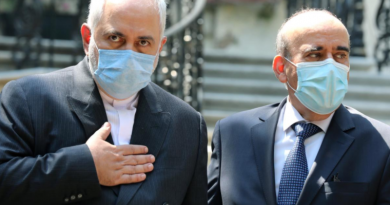MBS does not say “Hijab, abaya is not a must”, rather says “Black abaya is not a must”
Riyadh — The Saudi Crown Prince is misquoted to have said “Hijab, abaya is not a must”, while he specifically said “laws of Shariah does not particularly specify a black abaya or a black head cover”—in an interview hosted by CBS News in March 2018.
CBS News conducted an interview with the 33-year-old Saudi Crown Prince Mohammed bin Salman on March 19 2018 during his American tour, under the title “Saudi Arabia’s heir to the throne talks to 60 Minutes”.
During the interview, the famous American journalist Norah O’Donnell asked about “moderate Islam” and Mohammed bin Salman’s ambitions to take Saudi Arabia back to what it was before.
Responding to the question, Mohammed bin Salman spoke about the surge in extremism and Saudi Arabia’s efforts in combating it, and further he highlighted about the women empowerment under vision 2030.
“The laws are very clear and stipulated in the laws of Sharia: that women wear decent, respectful clothing, like men. This, however, does not particularly specify a black abaya or a black head cover. The decision is entirely left for women to decide what type of decent and respectful attire she chooses to wear,” Crown Prince said.
Saudi Arabia’s official fatwa issuing body Lajna al-Lajnah al-Daaimah with fatwa reference 17/108 stated that the dress of the Muslim woman need not only be black.
“The dress of the Muslim woman need not only be black. It is permissible for her to wear any colour of clothing so long as it covers her ‘awrah, does not resemble men’s clothing, and is not so tight as to show the shape of her limbs or so thin as to show what is beneath it, and does not provoke temptation,” Fatwa mentioned.
“Wearing black for women is not a must. They may wear other colours that are worn only by women, do not attract attention and do not provoke desire,” another fatwa with reference 17/109 said.
No where in the interview Saudi Crown Prince said “Hijab or abaya is not a must”.
Saudi society has long faced the debate whether a Muslim woman should wear a head abaya or a shoulder abaya, and whether she should wear only black abaya. Religious leaders and representatives have held academic discourses to determine if Shariah law permits only black abaya. The positive outcome was—black abaya is not a must.



